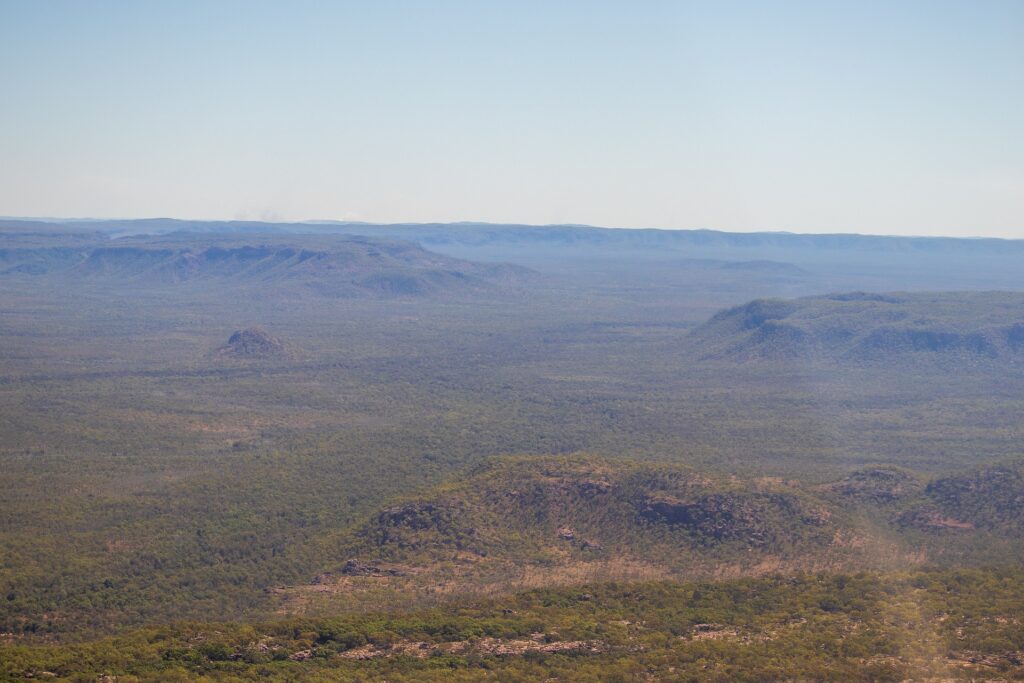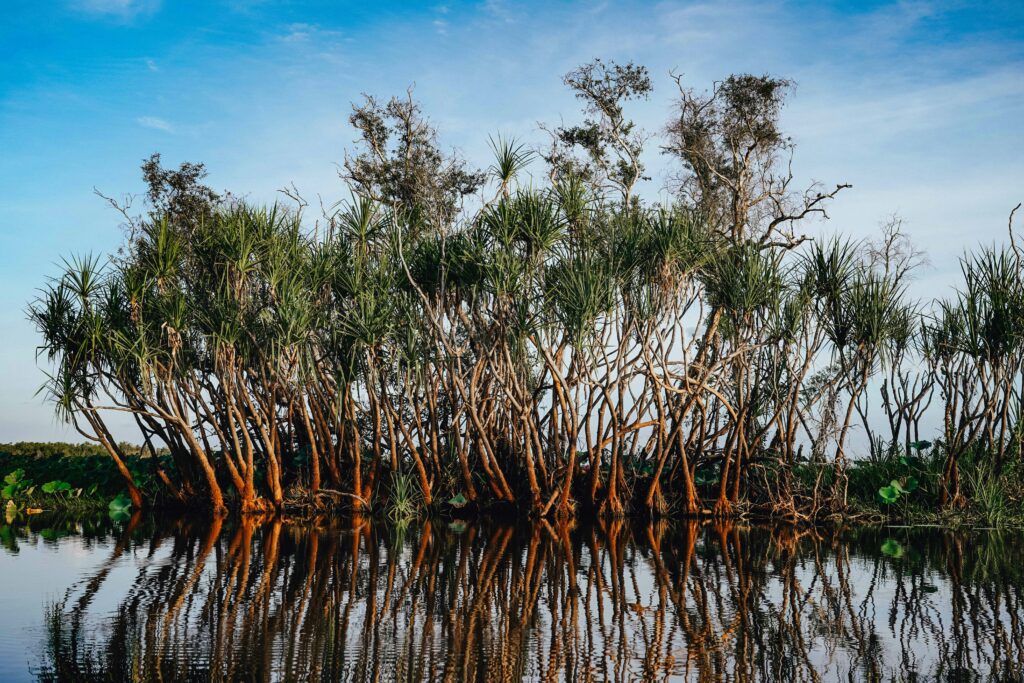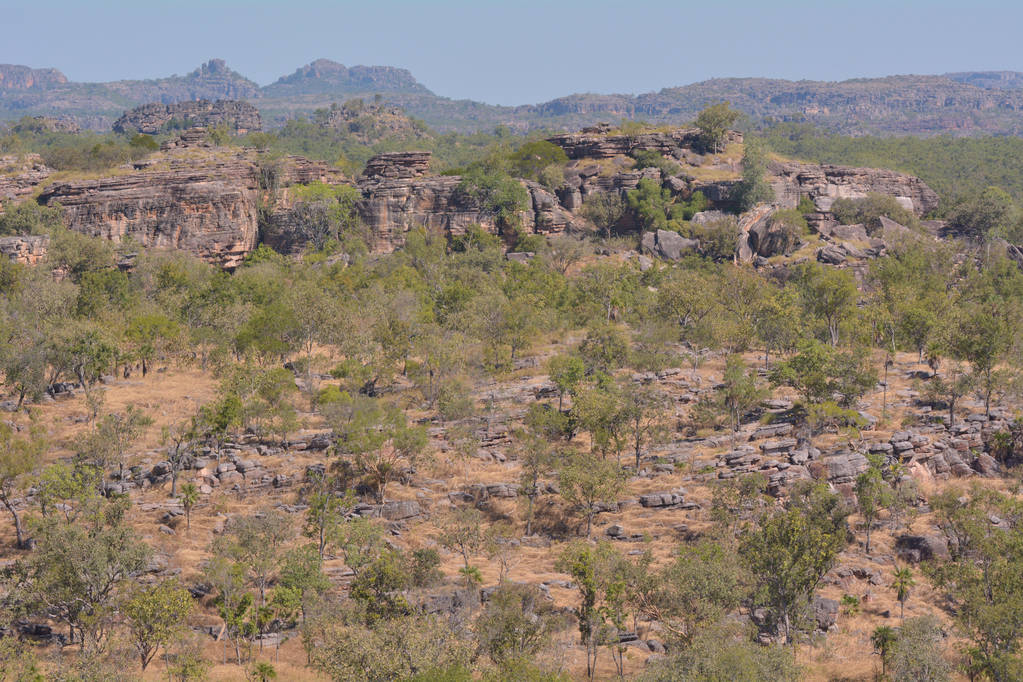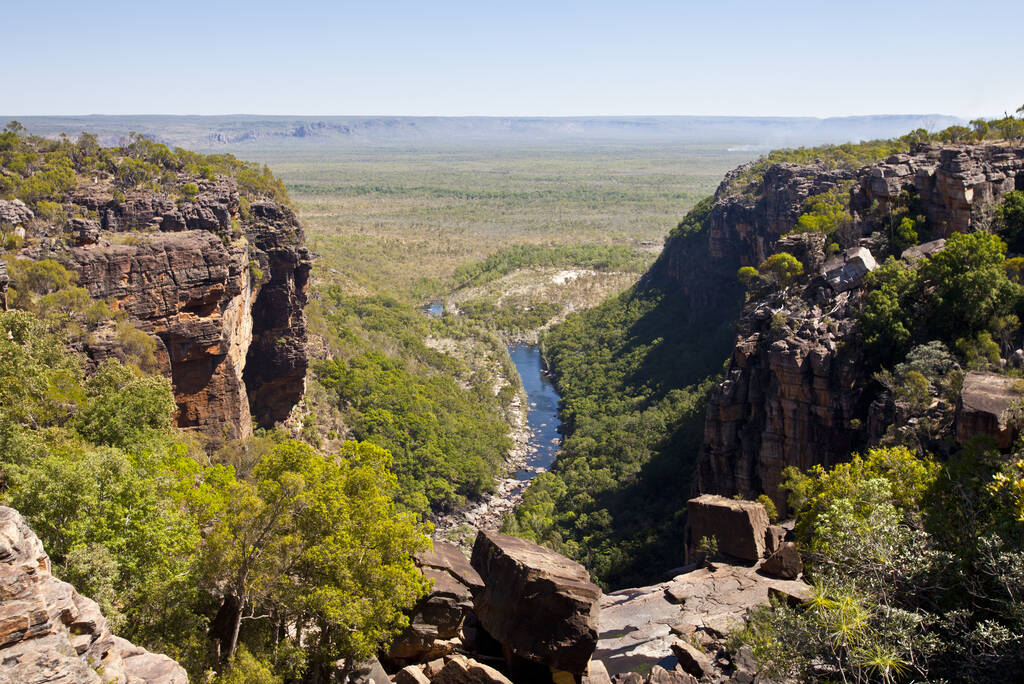Kakadu National Park, a UNESCO World Heritage-listed site located in Australia’s Northern Territory, is a vast and diverse wilderness area that showcases the unique beauty of the Australian Outback. Spanning over 19,000 square kilometers, Kakadu is not only Australia’s largest national park but also one of the most ecologically and culturally significant places on Earth.

Boasting rugged sandstone cliffs, towering waterfalls, expansive wetlands, and ancient rock art sites, Kakadu is a place of breathtaking natural beauty and cultural richness that offers visitors a glimpse into the heart of Australia’s indigenous heritage. The park is home to a diverse array of wildlife, including saltwater crocodiles, wallabies, dingoes, and a myriad of bird species, making it a paradise for nature lovers and wildlife enthusiasts alike.
One of the most iconic features of This Park is its extensive wetlands, which provide vital habitat for a diverse range of flora and fauna. The seasonal inundation of the wetlands supports a rich ecosystem of waterbirds, fish, and aquatic plants, making it a prime spot for birdwatching and wildlife spotting. Take a cruise along the Yellow Water Billabong to witness the abundance of birdlife, including majestic egrets, colourful kingfishers, and the unmistakable jabirus, as well as the occasional saltwater crocodile lurking beneath the water’s surface.
For those seeking adventure and outdoor exploration, Kakadu offers a plethora of opportunities to immerse oneself in the rugged beauty of the Australian Outback. Embark on a scenic walk to the top of Ubirr or Nourlangie Rock to marvel at ancient Aboriginal rock art that dates back thousands of years, depicting Dreamtime stories, wildlife, and cultural traditions of the indigenous people who have called this land home for millennia. These rock art sites are not only a testament to the rich cultural heritage of the region but also a window into the spiritual connection between the land and its traditional custodians.

Kakadu National Park is also renowned for its impressive collection of waterfalls, which cascade over dramatic sandstone escarpments during the wet season, creating a spectacle of natural beauty and power. Visit the iconic Jim Jim Falls or Twin Falls to witness the sheer majesty of these towering waterfalls plunging into crystal-clear plunge pools, surrounded by lush rainforest and towering cliffs. During the dry season, these waterfalls transform into tranquil oases where visitors can swim, relax, and soak in the serenity of the natural surroundings.
More:Read about on Hidden Gems of the Sunshine Coast Hinterland
To truly appreciate the diverse landscapes and ecosystems of Kakadu, consider embarking on a scenic flight over the park to gain a bird’s eye view of its vast expanse. From the air, you’ll witness the patchwork of floodplains, savannah woodlands, and rugged escarpments that make up this unique landscape, as well as the meandering rivers and billabongs that thread their way through the wilderness, teeming with wildlife and natural beauty.
When it comes to cultural experiences, Kakadu National Park offers a wealth of opportunities to learn about the traditions and customs of the region’s indigenous inhabitants. Join a guided cultural tour led by local Aboriginal guides to gain insights into the Dreamtime stories, bush tucker, and traditional hunting practices of the Bininj/Mungguy people who have lived in Kakadu for thousands of years. Participate in a traditional corroboree, sample bush tucker cuisine, or simply sit by the campfire and listen to the ancient tales passed down through generations.
For those looking to unwind and reconnect with nature, Kakadu National Park offers a range of accommodation options to suit every preference and budget. Whether you prefer camping under the stars, staying in a comfortable lodge, or indulging in a luxury wilderness retreat, Kakadu has something for everyone. Wake up to the sounds of nature, explore the park at your own pace, and immerse yourself in the tranquility and beauty of this pristine wilderness escape.
More: Wanted to download Odisha Magazines, visit here

In conclusion, Kakadu National Park stands as a testament to the awe-inspiring natural beauty, cultural richness, and ecological diversity of the Australian Outback. From its ancient rock art sites to its cascading waterfalls, lush wetlands, and diverse wildlife, Kakadu offers a truly immersive and unforgettable experience that showcases the best of Australia’s wilderness and indigenous heritage. Whether you’re seeking adventure, cultural immersion, or simply a moment of tranquility in nature, Kakadu National Park beckons with its timeless beauty and spirit of the land.
FAQ For Explore The Beauty of Kakadu National Park
Where is Kakadu National Park located?
Kakadu National Park is located in the Northern Territory of Australia, about 171 km southeast of Darwin.
What is the best time to visit Kakadu National Park?
The best time to visit Kakadu National Park is during the dry season, from May to September, when the weather is cooler and many attractions are accessible.
What are some must-see attractions in Kakadu National Park?
Some must-see attractions in Kakadu National Park include Ubirr Rock, Nourlangie Rock, Jim Jim Falls, and Yellow Water Billabong.
Are there crocodiles in Kakadu National Park?
Yes, Kakadu National Park is home to both saltwater and freshwater crocodiles. Visitors are advised to be cautious around waterways.
Can I camp in Kakadu National Park?
Yes, camping is allowed in designated campgrounds within Kakadu National Park. You can choose from basic campsites to more equipped facilities.
Are there guided tours available in Kakadu National Park?
Yes, there are guided tours available in Kakadu National Park that offer insights into the park’s cultural and natural treasures.

